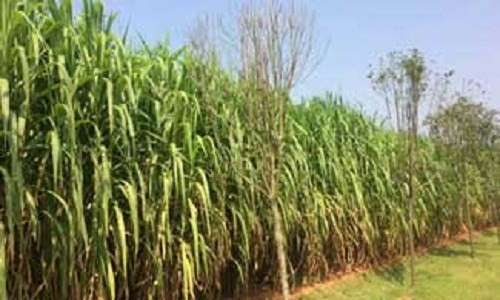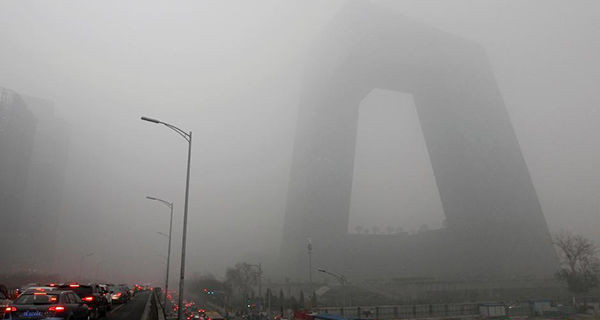The grass may be the noodle Thach Sanh that absorbs CO2
A fast growing and healthy grass species "lyu xin" (green heart) can become a new weapon in the fight against climate change in the world.
The grass absorbs CO2, helps clean the environment
Lyu grass can grow 5m high in two months and act as a sponge to absorb carbon, absorb more CO2 than greenery , according to Lei Xuejun, director of the Center for Carbon Cycle Research at Forestry University. and Central South Technology in Hunan, China.

Lyu grass is able to absorb CO2 better than green plants.(Photo: Xinhua).
According to Xinhua, Lei planted grass for the first time in 2013 and began conducting research on it. Hunan City of Changsha quickly realized the potential of lowering CO 2 in the air of grass. Over the past two years, Truong Sa planted more than 20 hectares of grass and provided funds for LEI's research team to optimize this hybrid grass.
Shaped similar to sugarcane or sago, lyu please regrow quickly after cutting and can grow 3-5 crops a year. Crops can be ground and processed to produce products such as paper, construction materials and fertilizers. Lyu grass tolerates high temperature and drought as well as grows well in poor soil.
Each hectare of grass can absorb and concentrate more than 200 tons of CO 2 a year while trees only absorb 15 tons / ha, according to the China Quality Control Center. Xu Heping from the Ministry of Science said that lyu grass can lower the cost of smoking and storing carbon , reducing the density of CO2 in the air.

Haze pollution in Beijing, China.(Photo: China News).
Changsha hopes that by expanding the area under grass, setting up a carbon exchange system and reducing CO2 emissions, this industrial city will achieve its goal of not producing carbon, according to Yang Yiwen, chairman of the board. city.
Local authorities also plan to bring products from the grass to the market, allowing polluting companies to buy green products to offset emissions.
However, lyu please also raise many suspicious opinions. Wang Guangjun, Lei's ecology professor and colleague, said the growth rate of this grass created a negative effect, causing an imbalance in the ecosystem.
Tan Xiaofeng, a botanist specializing in wood plants, stressed that long-term testing is needed to determine the true carbon uptake effect of lyu grass.
- Anti-flood grass was born
- Video: Ghost grass 'devour' the desert house
- Discover a grass that tastes like ... chips
- Overcoming pollution by ... grass
- Squid grass: Great taste
- Detecting dangerous grass in wheat imported into Vietnam
- Thach Son Cancer Village: From the earth to the sky are poisonous
- Ha Tinh discovered the prehistoric remains
- The species that is capable of 'dying' makes scientists 'headaches'
- Romantic rose grass hill in Da Lat
- Improving coal dumps with ... grass
- The first three black holes appear in the universe
 Why do potatoes have eyes?
Why do potatoes have eyes? 'Tragedy' the world's largest carnivorous life: Death becomes ... public toilet
'Tragedy' the world's largest carnivorous life: Death becomes ... public toilet Tomatoes were once considered 'poisonous' for 200 years
Tomatoes were once considered 'poisonous' for 200 years Detecting microscopic parasites on human face
Detecting microscopic parasites on human face